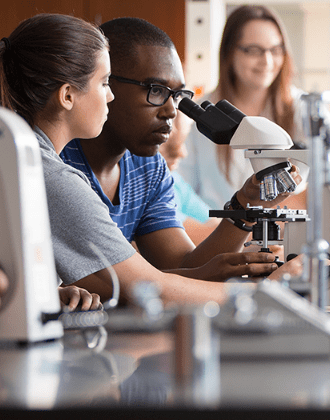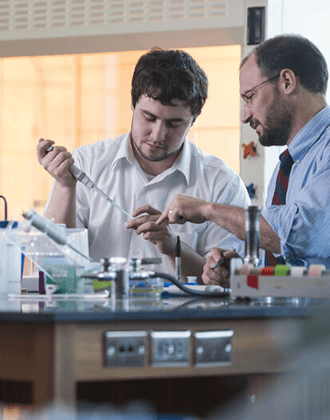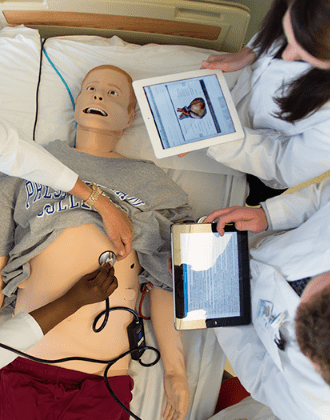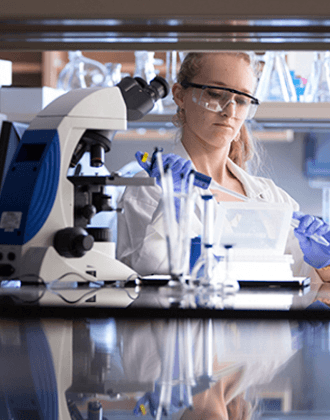- The median pay for physicians and surgeons was $208,000 per year in 2019, according to the Bureau of Labor and Statistics.
- The percent change in employment for physicians and surgeons is projected to be 7%, compared to 5% for other occupations, from 2018 to 2028
- Regional medical schools often tell us our graduates are among the most well-prepared students they have.
- Pre-med students at PC begin preparing for medical school during the first semester of their freshman year.
What you’ll study as a Pre-med Student
Many students think there’s a pre-med major. Like all colleges and universities, PC doesn’t have a pre-med major. You can choose any major you wish. However, you’ll follow a rigorous schedule to qualify for admission into a medical school or program.
During the first semester of your freshman year, it’s recommended that you take Biology 1150 and lab as well as Chemistry 101 and lab. Taking these courses together helps you stay on track for graduate school prerequisites and prepare for the MCAT. Plus, Biology 1151 and Chemistry 102 are required before you can take many of the upper-level courses needed for a health science track.
Although not required, it’s recommended that you also select a total of eight hours from courses in anatomy, physiology, microbiology, cell biology, and genetics. Medical school doesn’t require only science classes. You’ll also need to take six hours of math and six hours of English. The MCAT requires you to take a psychology course and a sociology course.
Your advisor will help you select courses to take so that you’re ready for the MCAT you’ll take in your junior year and potentially for med school. And you’ll have opportunities to prepare for the exam by taking mock exams.
You’ll get lots of personal attention from your advisor and in the small classes, you’ll be in. Since your advisor will get to know you so well, he or she will offer you advice about how you can improve your chances of getting into a med school or program. Your advisor will provide you with the forms you’ll need to register for the MCAT and the admissions forms when it’s time for you to apply to med school.
MORE INFORMATION
- CO = Co-requisite
- CO = Co-requisite
- POI = Permissions of Instructor
- PR = Prequisite
- RE = Recommended
- XL = Cross-listed
CAREER OUTCOMES
The median pay for physicians and surgeons was $208,000 per year in 2019, according to the Bureau of Labor and Statistics. The BLS has good news for you if you want to become one: The job outlook for physicians and surgeons is better than average. The percent change in employment from 2018 to 2028 is projected to be 7%, compared to 5% for other occupations.
A few recent PC graduates who are now in the medical field include:
- Dr. Bobby Keskey
- Dr. Meghan (Skinner) Jordan, MD, internal medicine and pediatrics
- Dr. Katherine Anne (Mooneyham) Potter, assistant professor of dermatology at Augusta University
- Dr. D.J. Fredericks, orthopedic surgeon at Resident at Walter Reed National Military Medical Center
- Dr. Grayson Sumner, D.O. of family medicine
A few recent PC graduates now in medical school are in residency programs include:
- Thomas Valente (residency)
- Chris Parnell (rising 4th year)
- Justin Davidson (rising 2nd year)
- Emma Gray (entering this year)
- Lexy Clark (entering this year)
CAREER PROFESSIONS
- List Items Here
- List Items Here
- List Items Here
- List Items Here
- List Items Here
- List Items Here
- List Items Here
- List Items Here
- List Items Here
- List Items Here




